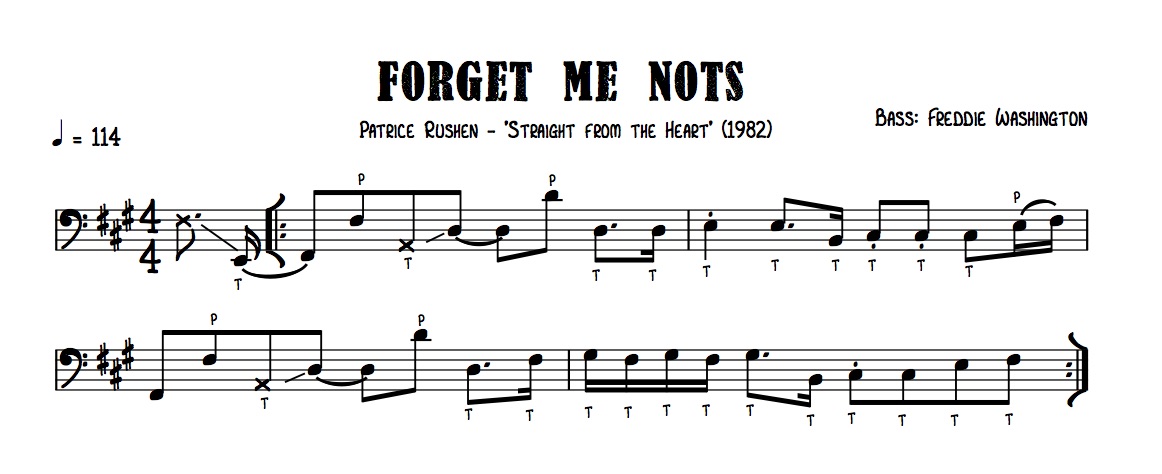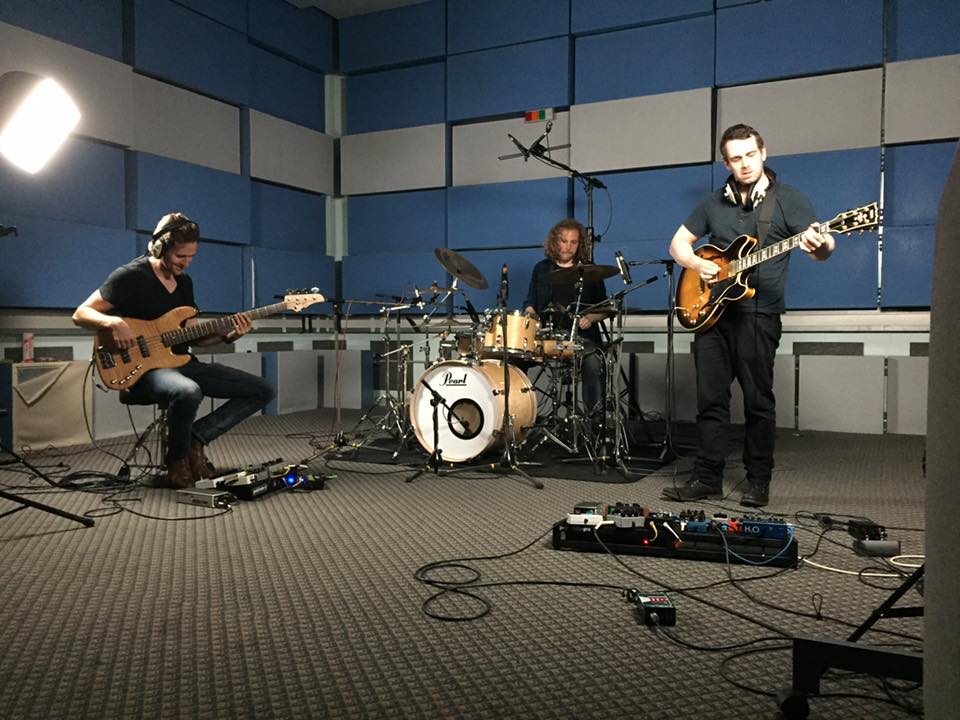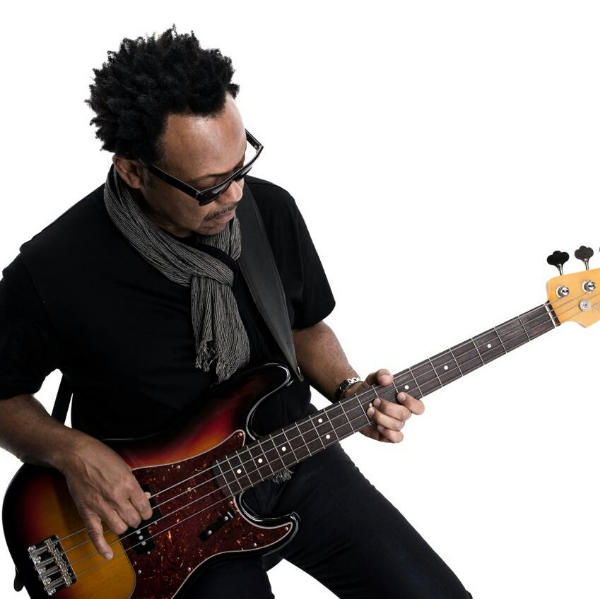‘Functional’ slap bass – You’ll Never Be Ready – (No More) Longing To Be Loose
‘Ready’ Freddie Washington is certainly no slouch when it comes to the bass. He’s recorded with artists such as… toured with the notoriously demanding Steely Dan, and when it was time for him to contribute to the Standing In The Shadows Of Motown project he nailed Jamerson’s syncopated chromatic wizardry on The Supreme’s ‘I’m Gonna Make You Love Me’ first take with no preparation. ‘Ready’ indeed.
His most famous contribution to the canon of classic bass grooves is his slapped sub-hook on Patrice Rushen’s ‘Forget Me Nots’:

As with the last edition of Groove Of The Week (Pleasure’s ‘Glide’), the key to this (and many other slap lines) is developing a consistently strong thumb sound on the D string. How to go about this? I found the imaginatively titled ‘Slap It‘ had some useful exercises for refining thumb technique (very boring, but good for focusing on the fundamentals). As an aside, I vehemently disagree with the author’s preference for ‘thumb down’ slapping as it makes absolutely no sense from a biomechanical point of view and puts your fingers, hand and wrist in a terrible position for popping the strings.
‘Forget Me Nots’ and the other thumb-based grooves in this series represent what I’d term ‘functional’ slap bass and give you an idea of the amount of slap capability that is required to survive as a working bass player – unless you’re part of a Level 42 tribute act.
More on being ‘ready’. Or, more accurately, not being ready). I recently found myself recording some fairly demanding music (well, I found it fairly demanding) as part of a PhD project to analyse the communication between musicians in an improvisational setting. A future best-seller, I’m sure. Here’s how it looked:

This entailed being filmed performing a variety of fusion tunes (including selections by Wayne Krantz and Oz Noy) without a great deal of rehearsal. As with every piece of work that I take on, I tried to do my homework as best I could, devoting whatever spare time that I had to working on the material.
When it came to the session, I had a number of musical ideas that I’d worked into my playing and wanted to commit to tape (or Pro Tools, at least).
I played approximately 10% of what I wanted to. Why? Because you can’t expect to cram in new vocabulary and have it magically ‘pop out’ on demand in a performance situation. It takes a significant amount of time for new ideas to become fully internalised and appear outside of the practice room without sounding forced.
Knowledge and the application of that knowledge are worlds apart.
In summary, no amount of short-term prep work will ever make you (or I) ready for the gig. The goalposts are always moving, and when you feel like you’ve ‘got it down’ then something new will appear that happens to be out of your reach.
I once studied with someone who’d spent some time with Herbie Hancock. My favourite nugget of second-hand wisdom from Mr. H is this:
Quite.
Wayne’s World
On a lighter note, the aforementioned Wayne Krantz recently made the guitar and bass scores from Long To Be Loose, one of my favourite albums, available for free download. You can also find the superb Greenwich Mean album (featuring Tim Lefebvre and Will Lee on bass duties) for free on the same site.
I was relieved to find that the transcriptions that I had made for the session were almost entirely accurate, but the thing that surprised me most was just how much of the music was composed rather than improvised considering how spontaneous the record sounds.

